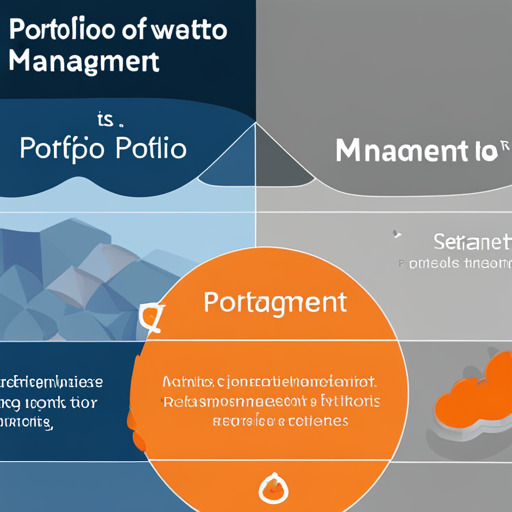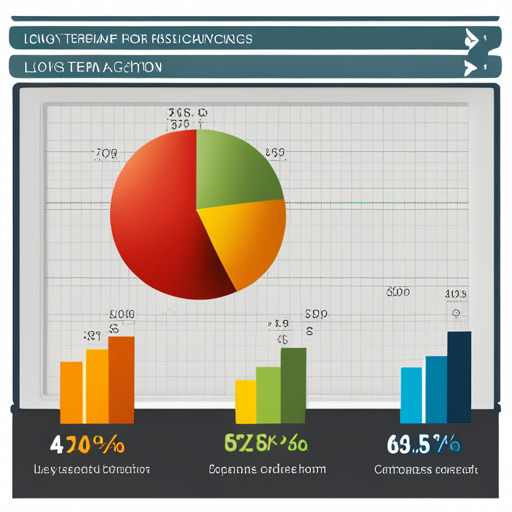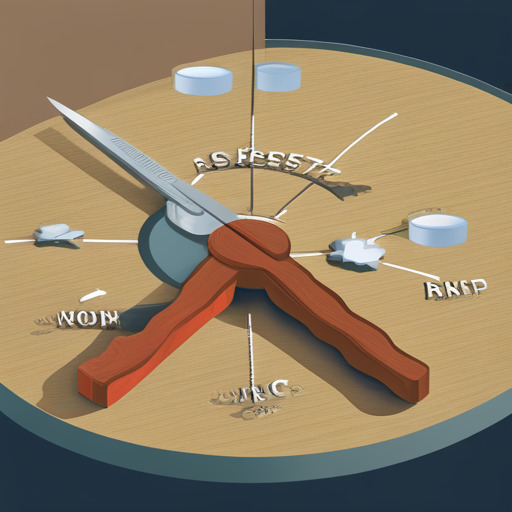#AssetDistribution
Explore tagged Tumblr posts
Text
Queens Probate Lawyer – Free Consultation with Richard Cary Spivack

Need help with probate matters in Queens? Richard Cary Spivack, an experienced probate lawyer, offers a free consultation to guide you through wills, estates, and trusts. Whether you're settling an estate or facing legal challenges, his expertise ensures clarity and peace of mind. Take advantage of a probate lawyer free consultation to understand your options and simplify complex legal processes. Contact Richard Cary Spivack today to schedule your no-obligation session and get the trusted legal support you deserve.
0 notes
Text
How to Distribute Assets: Key Strategies Tips for Success
How to Distribute Assets effectively Get expert tips and ensure a smooth, fair process with proper planning, legal guidance, and clear communication.

0 notes
Text
WILL PART 2

REQUIREMENT OF A VALID WILL
A valid will must be in writing: It is imperative that a person has to take note of this important condition that a will can be typed, printed, or handwritten. It is a legally binding document that must be made in writing in order for it to be enforceable.
An individual of legal age can make a valid, He/she must be at least 18 years of age, with sound mind meaning that he/she understands that a will is being made and is the same as at the time of making the will.
A will must be made voluntarily without any external influence.
The will must be signed by the testator or any person he chooses on his behalf who then must sign in his presence and by his directions.
The testator must acknowledge his signature in presence of two (2) witnesses who must be present at the same time. Acknowledgement can be by word or conduct
The witnesses must themselves sign the will in presence of the testator. It is important to note that a witness cannot be a beneficiary to a will, and any gift given to a witness will be null and void. Choosing people who are not beneficiary to the will as witnesses will prevent a conflict of interest and ensure confidentiality. Therefore, the testator’s spouse and children cannot attest to a will, since they are definitely going to be beneficiaries in it.
A blind person can make a valid Will and there must be a Caveat in the Will stating that the Will was read to the blind person and was signed by the person. However a Will can not be attested by a blind person.
There is however an exception to the making of a Will, a person who is not of a legal age and serves under any form of military service can make a valid Will.
CONTENTS OF A VALID WILL
The full name and address of the testator.
The names and address of the executors who will be in charge of the testator’s assets and ensure that the wishes under the will are carried out.
The full names and addresses of the beneficiaries in the will, and where the beneficiaries are minors, the particulars of the guardian appointed for them.
A full list and particulars of the testator’s assets; all the assets of the testator both real and personal should be listed, and how he wants the assets shared among the beneficiaries.
The names and addresses of witnesses to the will.
Signatures of the testator and that of the Witnesses.
REVOCATION OF A WILL
There are four ways in which a Will may be revoked as follows; by marriage, by making another Will, by writing to revoke and by destruction.
Revocation of Will by Marriage: The testator’s marriage will automatically revoke any existing wills and codicils.This revocation occurs by operation of law, whether or not the testator wishes or intends such a revocation. Unfortunately, not all married persons are privy to the knowledge of this deemed revocation and the law may occasionally be viewed as creating some hardship to the disappointed beneficiaries. The rationale for this rule however, is to ensure that any children and new spouse will benefit, that is by creating an intestacy in the absence of a new will. In Section 11 Wills Edict 1990 0f Lagos State, the typical law states:
“Every Will made by a man or woman shall be revoked by his or her marriage (other than a marriage in accordance with customary law) except: A will expressed to be made in contemplation of the celebration of that marriage. Provided that the names of the parties to the marriage contemplated are clearly stated”.
An exception to this general rule is made if, and only if,
Wills made in exercise of a power of appointment in which the person appointed will not default of the appointment but it passes to his or her executor or administrator.
Wills expressed to be made in contemplation of celebration of a marriage where the names of the parties to the marriage contemplated are clearly stated.
Revocation of Will by Voluntary Act: Pursuant to Section 14 of the Wills Act, a will may be revoked, in whole or in part, by the formal execution of a written declaration of revocation, whether this declaration stands alone or is found as part of a subsequent will or codicil. To be effective, however, the testator must intend to rescind the prior will, in whole or in part. It requires both a written declaration expressing the testator’s intent to revoke the prior will and requires that such a declaration be properly executed in compliance with the Wills Act formalities. Most often the revocation will be included in a new will or codicil however that is not required so long as the declaration of revocation is properly executed in compliance with the Wills Act formalities. From a practice standpoint therefore, where a testator wishes to make changes to a previous will, we suggest the safest practice is usually to start again by drawing a new will revoking the previous will entirely and thus avoiding any confusion. The words of revocation are not clear, the earlier will remain.
Revocation of Will by Destruction: a will, or part of a will may be revoked by the destruction of the will by the testator or by the testator’s direction and by sufficient destruction, with the testator’s intention of revocation. The intention to destroy and the act of destruction must coexist for a valid destruction. The Wills Act requires both that the testator intends a revocation by destruction and witness or participate in that destruction, whether it be the testator or his or her agent who physically effects the destruction. Partial destruction will not revoke the entire will unless those parts of the will left intact cannot stand on their own. The destruction must not merely be symbolic, but result in actual 'physical injury' to the will, such as cutting the will into bits which could not be pieced together or total incineration. The intention to revoke, no matter how clear it may be, is not enough without a completed act of destruction of the will. Similarly, destruction without intention to revoke does not revoke the will.
#EstatePlanning#LegalAdvice#WillsAndTrusts#ExecutorResponsibilities#FamilyLegacy#FinancialPlanning#ProbateProcess#InheritanceRights#TestamentaryCapacity#Guardianship#AssetDistribution#ProtectYourLegacy#LegalTips#WillsLaw#RevocableTrust#aalawsng#lawfirmsinibadan
0 notes
Text
Asset Allocation: A Comprehensive Guide to Building
Asset Allocation:Introduction

The article starts by introducing the idea of asset allocation and describes its importance in handling and expanding an investment portfolio. It highlights the value of a balanced portfolio in reducing risks and increasing returns and also gives an outline of the article's layout and topics.
I. Understanding

A. First, the article talks about what Asset reallocation is and its main ideas. B. Next, it looks into how risk tolerance affects Investment asset mix C. Lastly, the article studies how investment time affects asset allocation choices. Here, the complexity of the wording is simplified for easier understanding.
II. Diversification: The Key to Successful Portfolio adjustment

A. Then, it dives into diversification and its advantages. B. Also, the article examines diversifying portfolios among different asset classes. C. Lastly, it talks about diversifying within asset classes. In this revision, the wording is more straightforward and easier to understand.
III. Strategic Asset Allocation: Planning for the Long Term

A. Initially, the text underscores the importance of financial goals and objectives B. Following this, it examines the role of rebalancing in strategic C. Lastly, it explores the impact of economic and market conditions on strategic Portfolio adjustment decisions.
IV. Tactical Asset distribution: Capitalizing on Market Opportunities

A. Afterward, the definition and approach of tactical asset allocation are presented. B. In addition, the article evaluates market opportunities and trends for tactical C. Conclusively, it discusses balancing strategic and tactical
V. Implementing in Your Investment Portfolio

A. To start with, the article describes how to select appropriate investments for each asset class. B. Moreover, it considers utilizing asset allocation tools and resources. C. In the end, it reviews monitoring and reassessing
Conclusion:

In summary, the article provides a comprehensive and practical guide to mastering and building a balanced investment portfolio. While gaining a comprehensive understanding of the fundamental principles , readers consequently appreciate its importance in minimizing risks and optimizing returns. As a result, they acquire essential insights for effectively diversifying their portfolios. In doing so, they familiarize themselves with various strategies, including, but not limited to, strategic and tactical

throughout the article. The text also covers planning and adjusting asset allocation according to financial goals, risk tolerance, and investment time horizon. Lastly, the implementation of Asset reallocation techniques and the use of helpful tools and resources are discussed. Asset reallocation

The conclusion encourages readers to incorporate these principles and practices into their investment journey, to build a more resilient and balanced portfolio. It also highlights the potential for long-term growth and financial success. Ultimately,

when needed, reaching out to professional financial advisors may further enhance one's ability to navigate the world of investing and make informed decisions. asset allocation strategies "Gain deeper insights and data on market analysis." Read the full article
#Assetallocation#Assetdistribution#InvestmentassetmixAssetreallocation#Portfolioadjustment#Risktolerance
0 notes
Text
0 notes
Link
Ask Me Anything "EPISODE 28" | Erica Endyke
Question: What is the difference between probate and non-probate assets?
Answer: (0:09) Probate assets are assets that are owned by yourself, individually, without a named beneficiary.
Non-probate assets, everything else, essentially anything that's owned jointly or an asset that has a named beneficiary, like your life insurance or your retirement policy.
(0:27) The difference in probate and non-probate asset not only goes to those elements but also what happens to those assets when someone passes.
(0:37) For a probate asset, remember, that's an asset that's in your name, without a named beneficiary, the asset gets stuck in your name. While you're alive, you could sign a check, you could sign a deed to the property, but when you pass, we don't have your signature anymore, so it's stuck.
The only person with the power to transfer it to your beneficiaries or your heirs was a probate court judge. Through the probate court process, which is very long, it's expensive, it's public, it's a process that a lot of people want to avoid.
(1:06) Non-probate assets, on the other hand, are either jointly owned assets or assets from the named beneficiary. Jointly owned assets are passed to the survivor without any court or any judge, just by operation of law.
And assets with named beneficiaries will get passed according to the beneficiary designation because there's a contractual obligation there which requires the life insurance company or the retirement company to disperse those assets to those individuals identified on the beneficiary designation forms.
If you have any questions, please feel free to reach out to me. Thanks!
For more AMA videos, subscribe to us at https://bit.ly/20westlegalAMAvideos
"Protect what matters most, no matter what."
#probateassets#nonprobateassets#probate#assets#assetdistribution#assetmanagement#estateplanning#financialplanning#legaldocuments#sudburylawfirm#sudburylawyer#20westlegal
0 notes
Text
Probate Lawyers Near Me: Your Guide for Navigating Estate Settlement in Queens

Sometimes, legal proceedings can be overwhelming. Most people experience mixed emotions during an already emotionally painful time after a loved one has passed. Thus, when someone is searching online for "probate lawyers near me" within Queens, I am the ideal person to write to. A probate attorney can guide you through the complex legal procedures and settle the estate efficiently and fairly. Queens Probate Lawyer specializes in estate settlements, guiding clients through each step with expert legal advice and support.
Probate Law in Queens
Probate is the legal process of administering a deceased person's estate. This includes the validation of the will, identification of assets, payment of debts and taxes, and distribution of the remaining assets to beneficiaries. If there is a will, the executor named in the will performs these duties under the supervision of the surrogate's court. If there is no will, the estate is settled according to New York intestacy laws.
Why You Need a Probate Lawyer
Probate laws are complicated, and errors in the process can lead to costly delays and disputes. Here are some key reasons to hire a probate attorney:
Legal Expertise: A probate lawyer ensures all legal requirements are met and helps avoid potential litigation.
Efficient Estate Administration: Probate proceedings can be completed more quickly with professional guidance.
Conflict Resolution: Family feuds may also arise over inheritance. A lawyer can help to mediate and avoid costly litigation.
Debt and Tax Management: Managing the debts, estate taxes, and final expenses may be overwhelming. A lawyer makes sure that everything is done legally.
Avoiding Mistakes: Probate filing mistakes may result in delays or extra costs. An attorney will help avoid these problems.
Process of Probate
A probate attorney walks you through every step of the way. Here's what you should know:
Step 1: Petition Filing
The probate process commences when the executor (or an interested party) files a petition with the Queen's Surrogate's Court to open an estate.
Step 2: Informing Heirs and Creditors
The court mandates the heirs, beneficiaries, and creditors should be informed about the proceedings wherein they can file claims against the estate, if necessary.
Step 3: Authenticating the Will
If a will exists, it has to be authenticated. This involves proving that it was signed, witnessed, and executed in compliance with New York law.
Step 4: Collecting and Valuing Assets
The executor, with the assistance of the probate attorney, identifies and values estate assets, including real estate, financial accounts, and personal belongings.
Step 5: Paying Debts and Taxes
Outstanding debts, funeral expenses, and taxes have to be paid before the rest of the estate is distributed.
Step 6: Distribution of Assets
When all debts and taxes are settled, the rest of the estate is distributed according to the will or intestacy laws to the rightful beneficiaries.
Selecting the Best Probate Lawyer in Queens
Selecting the best probate lawyer near you is the key to a smooth estate settlement. Here are some factors to consider:
Experience: Seek probate and estate law attorneys with experience.
Local Knowledge: An attorney who knows how to navigate the Queen's Surrogate's Court system can help move things along.
Reputation: Check client reviews and ask people for referrals to find an attorney you can trust.
Communication: A good attorney keeps you in the loop and answers your questions promptly.
Fees: Understand the attorney's fee structure: flat fee, hourly rate, or a percentage of the estate.
How Queens Probate Lawyer Can Help
At Queens Probate Lawyer (https://www.queens-probatelawyer.com/), we offer specialized legal services for your specific needs. Our attorneys help with:
Probate and estate administration
Will contests and disputes
Estate planning and asset protection
Trust Administration
Guardianship and conservatorship matters
With years of experience in handling probate cases in Queens, we ensure that the estate administration process is smooth, efficient, and legally sound.
Contact Us Today
If you are looking for "probate lawyers near me" in Queens, then Queens Probate Lawyer is here to help. Whether you need help with estate administration, will contests, or legal guidance, our dedicated attorneys are ready to provide the support you need.
0 notes
Text
WILL PART 2
REQUIREMENT OF A VALID WILL
A valid will must be in writing: It is imperative that a person has to take note of this important condition that a will can be typed, printed, or handwritten. It is a legally binding document that must be made in writing in order for it to be enforceable.
An individual of legal age can make a valid, He/she must be at least 18 years of age, with sound mind meaning that he/she understands that a will is being made and is the same as at the time of making the will.
A will must be made voluntarily without any external influence.
The will must be signed by the testator or any person he chooses on his behalf who then must sign in his presence and by his directions.
The testator must acknowledge his signature in presence of two (2) witnesses who must be present at the same time. Acknowledgement can be by word or conduct
The witnesses must themselves sign the will in presence of the testator. It is important to note that a witness cannot be a beneficiary to a will, and any gift given to a witness will be null and void. Choosing people who are not beneficiary to the will as witnesses will prevent a conflict of interest and ensure confidentiality. Therefore, the testator’s spouse and children cannot attest to a will, since they are definitely going to be beneficiaries in it.
A blind person can make a valid Will and there must be a Caveat in the Will stating that the Will was read to the blind person and was signed by the person. However a Will can not be attested by a blind person.
There is however an exception to the making of a Will, a person who is not of a legal age and serves under any form of military service can make a valid Will.
CONTENTS OF A VALID WILL
The full name and address of the testator.
The names and address of the executors who will be in charge of the testator’s assets and ensure that the wishes under the will are carried out.
The full names and addresses of the beneficiaries in the will, and where the beneficiaries are minors, the particulars of the guardian appointed for them.
A full list and particulars of the testator’s assets; all the assets of the testator both real and personal should be listed, and how he wants the assets shared among the beneficiaries.
The names and addresses of witnesses to the will.
Signatures of the testator and that of the Witnesses.
REVOCATION OF A WILL
There are four ways in which a Will may be revoked as follows; by marriage, by making another Will, by writing to revoke and by destruction.
Revocation of Will by Marriage: The testator’s marriage will automatically revoke any existing wills and codicils.This revocation occurs by operation of law, whether or not the testator wishes or intends such a revocation. Unfortunately, not all married persons are privy to the knowledge of this deemed revocation and the law may occasionally be viewed as creating some hardship to the disappointed beneficiaries. The rationale for this rule however, is to ensure that any children and new spouse will benefit, that is by creating an intestacy in the absence of a new will. In Section 11 Wills Edict 1990 0f Lagos State, the typical law states:
“Every Will made by a man or woman shall be revoked by his or her marriage (other than a marriage in accordance with customary law) except: A will expressed to be made in contemplation of the celebration of that marriage. Provided that the names of the parties to the marriage contemplated are clearly stated”.
An exception to this general rule is made if, and only if,
Wills made in exercise of a power of appointment in which the person appointed will not default of the appointment but it passes to his or her executor or administrator.
Wills expressed to be made in contemplation of celebration of a marriage where the names of the parties to the marriage contemplated are clearly stated.
Revocation of Will by Voluntary Act: Pursuant to Section 14 of the Wills Act, a will may be revoked, in whole or in part, by the formal execution of a written declaration of revocation, whether this declaration stands alone or is found as part of a subsequent will or codicil. To be effective, however, the testator must intend to rescind the prior will, in whole or in part. It requires both a written declaration expressing the testator’s intent to revoke the prior will and requires that such a declaration be properly executed in compliance with the Wills Act formalities. Most often the revocation will be included in a new will or codicil however that is not required so long as the declaration of revocation is properly executed in compliance with the Wills Act formalities. From a practice standpoint therefore, where a testator wishes to make changes to a previous will, we suggest the safest practice is usually to start again by drawing a new will revoking the previous will entirely and thus avoiding any confusion. The words of revocation are not clear, the earlier will remain.
Revocation of Will by Destruction: a will, or part of a will may be revoked by the destruction of the will by the testator or by the testator’s direction and by sufficient destruction, with the testator’s intention of revocation. The intention to destroy and the act of destruction must coexist for a valid destruction. The Wills Act requires both that the testator intends a revocation by destruction and witness or participate in that destruction, whether it be the testator or his or her agent who physically effects the destruction. Partial destruction will not revoke the entire will unless those parts of the will left intact cannot stand on their own. The destruction must not merely be symbolic, but result in actual 'physical injury' to the will, such as cutting the will into bits which could not be pieced together or total incineration. The intention to revoke, no matter how clear it may be, is not enough without a completed act of destruction of the will. Similarly, destruction without intention to revoke does not revoke the will.
#EstatePlanning#LegalAdvice#WillsAndTrusts#ExecutorResponsibilities#FamilyLegacy#FinancialPlanning#ProbateProcess#InheritanceRights#TestamentaryCapacity#Guardianship#AssetDistribution#ProtectYourLegacy#LegalTips#WillsLaw#RevocableTrust#aaLawsng#lawfirmsinibadan
0 notes
Text
Richard Cary Spivack: The Trusted Queens Probate Lawyer for Health Care and Living Will Guidance

Planning for the future can be an emotional and challenging process, but it is a crucial step to ensure that your wishes are honored and your loved ones are protected. Richard Cary Spivack, a highly regarded Queens probate attorney, has built a reputation as a trusted advisor for individuals and families navigating the complexities of estate planning, health care proxies, and living wills. With his expertise, you can feel confident that your affairs are in order and your wishes are clearly defined.
The Importance of a Health Care Proxy and Living Will
Health care proxies and living wills are essential components of comprehensive estate planning. These documents ensure that your medical and end-of-life care preferences are respected, even if you are unable to communicate them yourself.

Without these legal safeguards, your loved ones may face difficult decisions without knowing your true wishes, which can lead to unnecessary stress and conflict.
What Is a Health Care Proxy?
A health care proxy is a legal document that designates a trusted individual to make medical decisions on your behalf if you become incapacitated. This ensures that someone you trust will have the authority to act in your best interest during critical moments.
What Is a Living Will?
A living will outline your specific wishes regarding medical treatments and end-of-life care. It provides clear instructions to medical professionals and loved ones about your preferences for life-sustaining measures, such as resuscitation, ventilation, or feeding tubes.
Why Choose Richard Cary Spivack as Your Queens Probate Attorney?
Richard Cary Spivack’s extensive experience and compassionate approach make him the ideal choice for those seeking guidance on health care proxies and living wills. Here’s what sets him apart:
1. Expertise in Probate and Estate Planning
As a seasoned Queens probate attorney, Spivack has a deep understanding of New York’s probate laws and estate planning requirements. His knowledge ensures that your documents are legally sound and tailored to your unique needs.

Queens probate attorney
Every client’s situation is different, and Spivack takes the time to listen and understand your goals. He provides personalized guidance, helping you make informed decisions about your health care and estate planning documents.
3. Accessibility
Finding an "estate attorney near me" who is approachable and available is essential. Spivack’s commitment to clear communication and responsiveness ensures that you always feel supported throughout the process.
4. Free Consultations
For those searching for probate lawyers near me with free consultation, Spivack offers an initial meeting at no cost. This allows you to discuss your needs and explore your options without financial pressure.
Comprehensive Estate Planning Services

Richard Cary Spivack provides a full range of estate planning services to help clients secure their futures. In addition to health care proxies and living wills, his services include:
1. Drafting Wills
A will is the cornerstone of any estate plan. Spivack ensures that your assets are distributed according to your wishes, minimizing the risk of disputes among beneficiaries.
2. Establishing Trusts
Trusts can provide additional protection for your assets and loved ones. Whether you need a revocable trust, irrevocable trust, or special needs trust, Spivack can guide you through the process.
3. Probate Administration
Probate can be a complex and time-consuming process. As a trusted probate lawyer Queens, Spivack assists executors and administrators with navigating the legal requirements, ensuring a smooth resolution of the estate.
4. Power of Attorney
A power of attorney document designates someone to handle financial or legal matters on your behalf if you are unable to do so. Spivack ensures that your power of attorney is comprehensive and aligns with your overall estate plan.
The Role of a Probate Lawyer in Queens
Probate lawyers play a critical role in managing the legal aspects of settling an estate after a person’s death.

Richard Cary Spivack’s expertise as a Queens probate attorney ensures that the process is handled efficiently and in accordance with New York law.
Navigating Probate Court
Probate involves validating the deceased’s will and distributing their assets. Spivack’s familiarity with Queens’ probate courts allows him to streamline the process and address any legal challenges that may arise.
Resolving Disputes
Estate disputes can be emotionally draining for families. Spivack’s calm and professional approach helps to mediate conflicts and find amicable resolutions, preserving family relationships whenever possible.
Protecting Beneficiaries
A skilled probate lawyer Queens ensures that beneficiaries receive their rightful inheritances without unnecessary delays or complications. Spivack works diligently to safeguard your loved ones’ interests.
How to Get Started
If you’re ready to secure your future and protect your loved ones, the first step is finding the right "estate attorney near me." Richard Cary Spivack offers a free consultation to discuss your needs and develop a plan tailored to your circumstances. Here’s how to get started:

1. Schedule a Consultation
Contact Spivack’s office to schedule a free consultation. This meeting allows you to explore your options and understand the services available.
2. Gather Necessary Documents
Prepare any relevant documents, such as existing wills, trust agreements, or medical records, to help Spivack assess your situation.
3. Discuss Your Goals
During the consultation, share your goals and concerns. Spivack will provide clear guidance and recommendations to help you achieve peace of mind.
Why Act Now?
Estate planning is not something to put off. Unexpected events can leave your loved ones without clear guidance, leading to unnecessary stress and conflict. By working with a trusted Queens probate attorney like Richard Cary Spivack, you can take control of your future and ensure that your wishes are respected.
Conclusion
Richard Cary Spivack is a trusted advisor for individuals and families seeking guidance on health care proxies, living wills, and comprehensive estate planning. His expertise as a probate lawyer Queens ensures that your affairs are handled with professionalism and care. Whether you’re searching for "probate lawyers near me with free consultation" or an "estate attorney near me," Spivack’s personalized approach and commitment to excellence make him the ideal choice.

Don’t wait to secure your future. Contact Richard Cary Spivack today to schedule your free consultation and take the first step toward peace of mind for you and your loved ones.
0 notes
Text
Navigating Probate in New York: Top Lawyers You Can Trust

In most cases, probate may involve a contentious affair but having the right lawyer on your side is very essential. Richard Cary Spivack is considered the best probate lawyer of New York offering many years of work in the field of estate administration and probate. Clients appreciate professionalism, focus on details, and results-oriented strategy Spivack offers to resolve your matters promptly. In estate matters, succession, asset sharing, will and probate disputes, his knowledge is reassuring. Richard Cary Spivack will be there to help you through the process of probate and do so with comfort.
#legalguidance#estateplanning#assetdistribution#estatesettlement#legalsupport#estatelaw#beneficiaryrights#familylaw#queenslawyers#executor
0 notes
Text
Why You Need a Probate Attorney: A Comprehensive Guide

This can be quite emotional, and families often are also charged with the huge responsibility of taking care of their loved one's estate. Probate, the term used for the process of managing someone's estate after their death, can be overwhelming and even time-consuming. A probate attorney makes this entire process easy by getting everything right and efficiently handled. In this blog, we will explain what probate is, why you may need a probate attorney, and how a probate attorney can guide you through this overwhelming legal process.
What is Probate?
Probate is the legal administration of a deceased person's estate. It includes the following things:
Authentication of the Will (if one exists)
Establishment and Valuation of Assets
Payment of debts and taxes
Distribution of the remaining assets to beneficiaries
Probate is the process by which the deceased's assets are distributed according to his or her wishes (as outlined in his or her will) or, if no will exists, according to state law.
Although probate is a legal and financial necessity, it can be complex and lengthy, especially when not guided by a professional attorney.
Why Do You Need a Probate Attorney?
A probate attorney is a lawyer who specializes in guiding families through the probate process. Here are the top reasons why hiring a probate attorney is a smart choice:
1. Expert Guidance Through a Complex Process
Probate involves numerous legal procedures, deadlines, and paperwork. Any errors can delay the process or create legal disputes. A probate attorney ensures that every step is followed correctly and in compliance with local laws.
2. Settling Estate Conflicts
There is often an argument between members of the same family regarding assets. A probate lawyer can assist in settling or litigating issues in a court of law.
3. Preventing Costly Errors
Mistakes committed during probate can prove costly. Errors such as tax miscalculations, asset handling errors, and failure to beat set timeframes may cost a lot of money. A seasoned probate attorney ensures that mistakes are avoided during this process.
4. Paying Debts and Taxes
Debts and taxes are to be paid before assets are distributed. A probate attorney ensures that all the financial obligations are paid properly so that the risk for the beneficiaries is minimized.
5. Effective Administration of Estate
Probate may take months or even years, depending on the complexity of the estate. An attorney can expedite the process by handling all the legal aspects, from filing documents to resolving disputes.
6. What to Do When There Is No Will
When the deceased does not have a will, which is called dying intestate, things become more complicated in the probate process. State laws will dictate how the assets will be divided, and the probate attorney will make sure that the estate is treated equitably and according to law.
When Do You Need a Probate Attorney?
Not all estates require the services of a probate attorney, but you may want to consider hiring one if:
High-value or complex assets such as real estate, businesses, or investments.
No will or the will is contested.
Family members conflict with the estate.
The estate has significant debts or tax issues.
You are unfamiliar with the probate process and need professional guidance.
An experienced probate attorney can handle the legal burdens, giving you the time and space to focus on your family and healing.
What Does a Probate Attorney Do?
A probate attorney will manage a wide range of tasks depending on the complexity of the estate. These can include:
Filing the Will with the Probate Court to initiate the process
Identifying Assets and ensuring they are properly valued
Paying Debts and Taxes to clear the estate's obligations
Representing the Estate in Court if legal disputes arise
Preparing and Filing Documents with the court
Communicating with Beneficiaries to inform everyone
Distributing Assets to beneficiaries according to the will or state law
Managing these responsibilities brings a probate attorney peace of mind at a difficult time.
Benefits of Hiring a Probate Attorney
Hiring a probate attorney has many advantages, such as:
Having peace of mind knowing all legal and financial matters are managed professionally.
Time-Saving: An attorney works the process efficiently, saving you time and stress.
Reduced Conflict: A third party can mediate the disagreement and ensure fair outcomes.
Legal Expertise: Probate attorneys know how to navigate complex legal systems and avoid pitfalls.
How to Choose the Right Probate Attorney
When looking for a probate attorney, consider the following factors:
Experience: Look for an attorney with a proven track record in probate law.
Reputation: Take time to read reviews or ask for recommendations from some trusted sources.
Communication: Choose an attorney who would communicate clearly and keep you informed.
Fees: Understand their fee structure hourly rates or flat before hiring.
Taking your time to find the right probate attorney will ensure that your process is smooth and stress-free.
Conclusion
Your trusted source of expert probate attorney services to navigate estate administration, solve will disputes, and close a loved one's estate. Our experienced probate attorneys guide you with compassionate and professional care at every step of the way. ProbateLawyer.com connects you with solid legal support to simplify probate, ensuring peace of mind during difficult times.
#estateplanning#legalsupport#familylaw#beneficiaryrights#queenslawyers#estatelaw#estatesettlement#executor#assetdistribution#legalguidance
0 notes
Text
Experienced Probate Lawyer in NYC - Richard Cary Spivack
Richard Cary Spivack is an experienced probate lawyer in New York. He offers excellent legal service in estate planning, probate, and will administration. With over 30 years of experience, he helps clients navigate the intricacies of estate settlements with personalized attention and professionalism. Whether it is a will, trust, or guardianship, Richard ensures efficient and compassionate solutions tailored to your needs. Trust his proven track record to safeguard your family's legacy and achieve peace of mind.
#estateplanning#legalguidance#assetdistribution#estatesettlement#estatelaw#legalsupport#familylaw#beneficiaryrights#queenslawyers#executor
0 notes
Text
How to Choose the Right Probate Lawyer in New York: Key Factors to Consider

Selecting the right probate lawyer is critical in determining how your estate will be administered and how any legal matters that arise after a family’s patriarch or matriarch’s death will be handled. Indeed, given the vast choice, there are some vital criteria one should employ in order to choose competent as well as empathetic attorneys. Read on to get an insight on how to go about it;
1. Experience and Expertise
Tips to consider when searching for a probate lawyer is to consider someone who specializes in probate law and more so a lawyer in New York. Having an experienced lawyer such as Richard Cary Spivack, who has been practicing since 1985, a New Yorker will be in a good position to know more about New York probate laws. His experience as a person who used to be an Assistant District Attorney may just turn out to be an added advantage when dealing with issues of disputes.
2. A focus on the Probate and Estate legal sector
Make sure that the attorney narrowed down his/her practice to probate and estate planning. An estate planning attorney will be conversant with estate matters, wills, trusts and any matters to do with guardianship. That is why this specialization is important when it comes to solving your needs.
3.Reputation and Client Reviews
Check their record on their previous cases just to find what the clients are saying about them on the internet. References from the previous clients are a source of information about professionalism, approach and the percentage of case success in different Probate law. It is common knowledge that the best reputation equates to quality service delivery.
4. Communication Style
It is important that a probate lawyer be communicated with because he or she is an important lawyer to work with. Select a person, who is articulate in their speech, and quick to respond to your messages. You want an attorney who will not only simplify legal nuances but also report to you on every stage of the process.
5. Approach to Disputes
When there are chances that there could be future disagreements with the other beneficiaries or the family then go for that lawyer who handles such cases peacefully. Certainly Richard Cary Spivack has an ability to remain calm in court which can minimize some of the emotions that come with probate matters.
6. Wide Range of Service Providing
Choose an attorney that offers a vast service portfolio dealing with the issues of probate legislation, estates, and guardianship. This way, all the aspects of your legal requirements are fulfilled under the service from one provider, making the whole process much easier and faster.
7. Local Knowledge
It is sometimes helpful to retain a lawyer with experience in Queens probate court since the court in Queens has its procedures. Local legal assistance is especially beneficial considering any inhibitors that may exist when it comes to the probate process.
Conclusion
Understanding these parameters of selection will help you choose the right probate lawyer in New York, and ensure smooth working and closure for the estate as well as you and your family. To get more information about a specific case involving probate law, you should get in touch with Richard Cary Spivack today and receive a free consultation right away and secure your family’s future.
#estateplanning#legalguidance#assetdistribution#estatesettlement#estatelaw#legalsupport#beneficiaryrights#familylaw#queenslawyers#executor
0 notes
Text
Avoid Common Probate Pitfalls with the Help of a Probate
Probate can be a complex and time-consuming process, and there are several common pitfalls that can delay the administration of an estate. With the help of an experienced Queens probate lawyer, you can avoid these issues and ensure that the probate process runs smoothly. From improper documentation to disputes among heirs, a probate lawyer can guide you through every step, ensuring that all legal requirements are met and your loved one's estate is administered efficiently. Trust a skilled probate attorney to navigate potential challenges and protect your interests during probate.
#estateplanning#legalguidance#assetdistribution#estatesettlement#estatelaw#legalsupport#beneficiaryrights#familylaw#queenslawyers#executor
0 notes
Text
Secure Your Legacy with Expert Legal Guidance
Secure your loved one's future with an experienced probate attorney,
Richard Cary Spivack, in Queens, New York. For over 35 years, Richard has been practising estate planning, guardianship, and probate litigations. He is both a former Assistant District Attorney and a knowledgeable advocate for probate law issues with compassion. Schedule a free consultation today to discuss how he can help you meet your wishes and further secure those you love. Call 718-544-1000 today!
For more Visit on: https://ablocal.com/us/forest-hills-ny/LX11672992-richard-cary-spivack/
#estateplanning#legalguidance#assetdistribution#estatesettlement#estatelaw#beneficiaryrights#legalsupport#familylaw#queenslawyers#executor
0 notes
Text
Trusted Estate Planning and Probate Attorney in New York: Richard Cary Spivack
Richard Cary Spivack, a seasoned New York wills, estate, and probate lawyer, has been providing dedicated legal services in Queens and New York City since 1985. With a background as a former Assistant District Attorney, he specialises in estate planning, guardianship, and probate disputes. Richard’s expertise ensures your wishes are honoured and your loved ones are cared for, offering peace of mind during challenging times. Whether you need assistance with wills, health care proxies, or navigating the complexities of probate law, Richard Cary Spivack is here to help.
#estateplanning#legalguidance#assetdistribution#estatesettlement#estatelaw#legalsupport#beneficiaryrights#familylaw#queenslawyers#executor#probate lawyer
0 notes